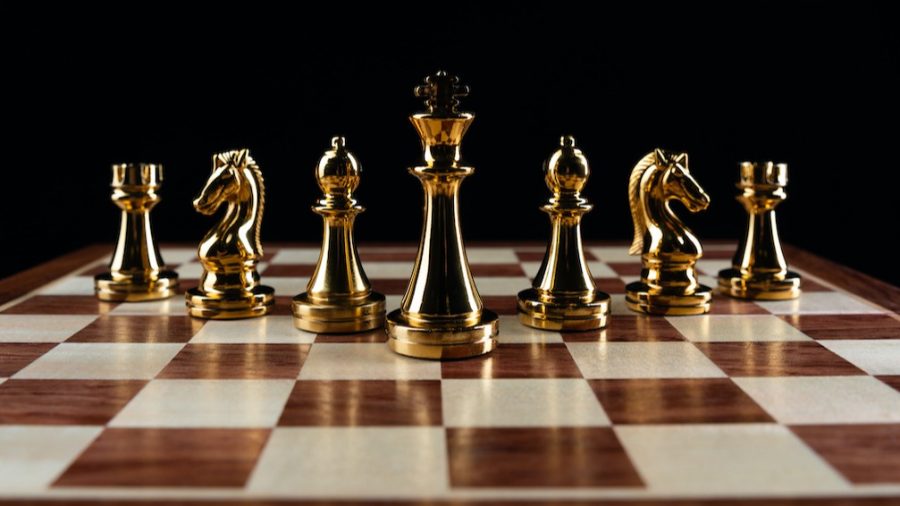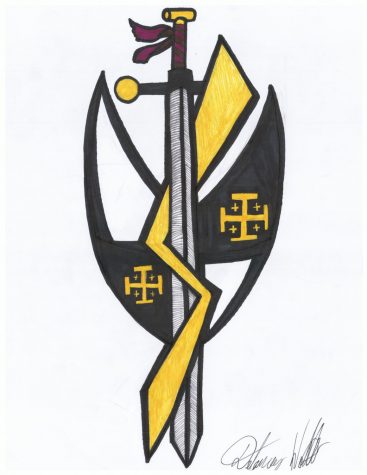Chess Is a Sport. Deal with It.
December 14, 2022
Chess is truly one of the most famous games of all time. It’s not very popular at all right now: consider that, if you were to ask your parents to play you in chess, they would most likely say they don’t know how. It’s strange, really: chess is one of the oldest games that we as a society still play, yet most of the time, if you try to make someone play chess without any prior experience, they’ll spend most of their time asking how the horsey moves. However, for the upper echelons of chess players, the game can be a full mental (and even physical) workout equivalent to trying to find out who the Impostor is in the hit [Ed. Note—and entirely unreferenced] game Among Us by Innersloth Studios. Despite this, a sizeable portion of the world doesn’t consider chess an actual sport. Why? No one may ever know—or, you know, you could continue reading and learn.
First, let’s define the word “sport.” Per the Oxford Dictionary, that’s “an activity involving physical exertion and skill in which an individual or team competes against another or others for entertainment. This term pertains to any form of competitive physical activity or game that aims to use, maintain, or improve physical ability and skills while providing enjoyment to participants and, in some cases, entertainment to spectators, or a contest or game in which people do certain physical activities according to a specific set of rules and compete against each other. It even extends to non-competitive activities like Myanmar’s chinlone, in which players work together, rather than competing against each other, to achieve a common goal.
Let’s get the most obvious thing out of the way: chess requires a massive amount of skill. If you happen to disagree, go on chess.com and play against the CPU (named Danya) without using a computer to tell you what your best move is, and let me know how you do. In the meantime, I’ll be over here explaining that chess is regarded as requiring sufficient skill that it sometimes rates an international broadcast for the most important of matches, like the World Chess Championship. Speaking of which, chess can be extremely competitive. During a good portion of the 20th century, it even served as one of many proxies for the Cold War! Even now, players from all around the world gather to play each other in a slew of intense matches, all to lose 90% of the time to Magnus Carlsen and, it turns out, if you manage to beat him, he may well accuse you of cheating.
Onto more contentious topics: the “physical” part of the above definition. When you think of sports, a few things might come to mind: basketball, baseball, both kinds of football: the American one and the boring one, or cricket, to name a few. All of these take bodily exertion to perform optimally. The popularity of these sports has implanted the idea that playing a sport has to be equivalent to a full-body workout, or otherwise it wouldn’t be “physical” activity. To which, dear reader, I ask the simple question: is the brain a physical thing? Does your brain . . . exist? Is your brain a physical object? Of course it is. The act of thinking, therefore, is also physical. Every move is an intense mental battle, trying to decide exactly what the best move is for each scenario, while taking into account the time limit that prevents any player from taking too long. Conversely, it’s not like those other sports don’t involve a good deal of thinking, especially the less-timed ones like baseball: it’s just that a lot of it happens much faster than during a chess match, even with the involvement of the clock.
A lot of people seem to think that chess isn’t a sport. Simply put, there isn’t exactly a good argument for this. There isn’t really anything that can establish why chess doesn’t deserve to be called a sport but baseball is, beyond the fact that that’s how we’ve always thought of them. If you still disagree, talk to the International Olympic Committee. I’m sure they’ll be willing to explain why they consider chess a sport, and if that’s not the ultimate authority, I don’t know what is.

